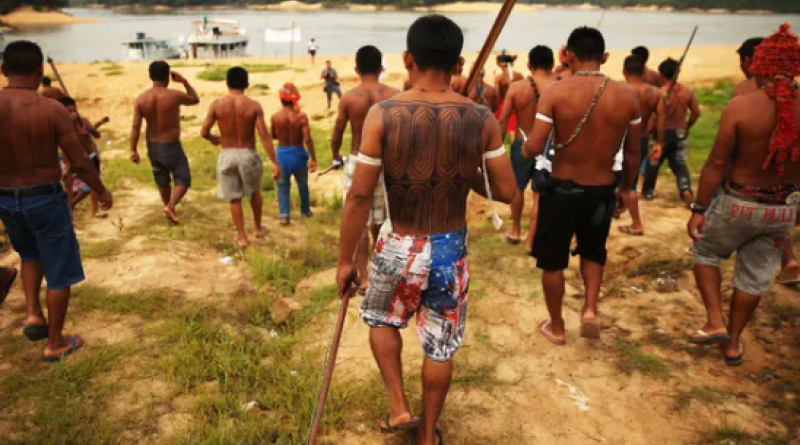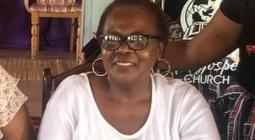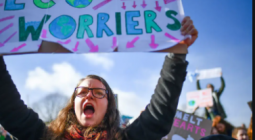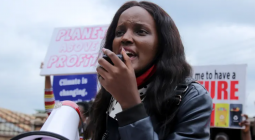Climate activists are being killed for trying to save our planet. There is a way to help

Last year, there were a record 227 killings globally. It is our duty to keep resisting the insatiable forces that led to their deaths.
Each year, we learn more about the climate crisis. The data flows: ever-rising heat, unprecedented deforestation, record rainfall. And once a year, we also learn more about the human impact of the crisis too, as data is released on the killings of land and environmental activists, the very people highlighting and protesting at the breakdown of our climate. As Global Witness’ annual report reveals, in 2020, that number rose to a record 227 killings worldwide.
Every time, the data hits me like a blow to the face. I’ve spent much of my life as an environmental activist and journalist, and so if I haven’t actually met the people sadly on this list, I’ve met hundreds exactly like them. Strong local people, attached to place and community, seeing their role in defending terrain and ancestral territory. Every person like this around the world is at risk.
And they are at risk, in the end, not so much because of another local person who pulls the trigger or plunges the blade; they’re at risk because they find themselves living on or near something that some corporation is demanding. Like Fikile Ntshangase, the South African grandmother who led a spirited campaign against a coalmine in KwaZulu-Natal province and was shot dead in her home last year. Or Óscar Eyraud Adams, the indigenous activist who, during Mexico’s worst drought in 30 years, vocally advocated for his community’s right to water, as the authorities denied them and granted corporations ever more permits. Oscar was shot dead in Tecate last September.
The demand for the highest possible profit, the quickest possible timeline, the cheapest possible operation, seems to translate eventually into the understanding, somewhere, that the troublemaker must go. The blame rarely if ever makes its way back up to a corporation’s HQ. But it should. Especially since the people who inhabit these places never really share in the riches produced there: colonialism is still running strong, even if it’s dressed up with corporate logos or hidden with offshore bank accounts.
Meanwhile, the rest of us need to realise that the people killed each year defending their local places are also defending our shared planet – in particular our climate. The activities that flood our atmosphere with carbon – fossil fuel extraction and deforestation – are at the heart of so many of these killings. When people stand up to block a pipeline, or an illegal mine, or a new plantation slated for an old forest, they are also standing in the way of the activities that threaten us all. They make life harder for the oil companies and the timber barons, and in so doing strive to safeguard all of us from incessant temperature increases.
And as we try to head off that rise by moving to more benign technologies, such as solar panels and electric cars, we’ll need to do so in ways that don’t create the same kind of sad sagas – cobalt mining or lithium production can be exploitative, too. If we took seriously the stories told in the Global Witness report, we surely would be able to better design these emerging industries.
Great respect is due to those who are working to develop corporate codes of conduct, or industry-wide standards, or government regulations – those are the tools that can help rebalance power, so that people can stand up to exploiters with less fear of being killed. But since we live in a world where greenwashing is a constant threat, let’s be clear: the worth of those codes and standards and regulations is not the words themselves, or the promises their sponsors proudly make. Their worth is measured entirely in outcomes, like reducing threats against land and environmental defenders.
What does progress on the climate crisis look like? One wants so badly to pick up this annual report some year and see that the answer to that question is: fewer killings. That violence is trending dramatically down, that the deaths have begun to fall – it would be as satisfying as watching Covid cases drop in the spring. Since there’s no vaccine for the greed of the wealthy, it may be years before that happens. But we can still speed the day: you and I, armed with the stories of those lives lost, are capable of putting enough pressure on the culprits that they find it necessary to change.
None of that will bring back those defenders of the planet who have been killed. That we have to fight simply to get our leaders to pay attention to science is frustrating, but there’s a big difference between fighting and dying: the names of these activists should be on our lips and in our hearts. We owe them debts that can’t be repaid – only paid forward.
-
Bill McKibben is the Schumann distinguished scholar at Middlebury College, Vermont, and leader of the climate campaign group 350.org
13 September 2021
THE GUARDIAN




